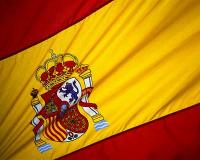 Perception isn’t always reality, and freshly opened Spanish online poker rooms are finding that out first-hand.
Perception isn’t always reality, and freshly opened Spanish online poker rooms are finding that out first-hand.
It’s been almost three weeks since a lot of the online poker rooms opened their doors in the country, but despite the buzz and excitement generated from getting licenses to a new market, players – mostly the pros and the high-value types – have been cool on playing on the sites due to concerns surrounding the country’s income tax structures.
According to Sacha Michaud, president of Spanish gaming association Jdigital, professional poker players and “high-value” customers have been staying away from Spanish online poker rooms in large part due to the looming income tax that Spanish players are required to pay. “The current operators’ online businesses have got off to a very good start,” said the JDigital president Michaud, as quoted from Pokerfuse.com. Yet it appears that it could be much better were it not for the income tax code, which obligates Spanish players to fork over income tax money on their winnings.
This predicament has forced a significant number of players, mostly the aforementioned pros and high-value players, to steer clear of playing in the new Spanish sites, which has then slowed down traffic in the poker rooms, particularly in cash games.
It gets even dicier because players can’t deduct losses from their tax bill; which means that whether you’re a winning player or a losing one, you’re still subject to face the same tax bills. It also appears that there’s no going around this issue for Spanish players because under the terms of being granted a license in Spain, the country’s gaming regulator, DGOJ, can extract regular information from these poker rooms, who are then obligated to send them.
PokerStars Poker Room Manager Steve Day was quoted in Pokerfuse.com, saying “If Hacienda formally requests information from us about a specific player in connection with a tax audit or tax investigation they are undertaking in respect to that player, we would be required to provide it.”
Some sites like Pokerstars.ES aren’t expected to be all that affected considering that they pretty much own 70% of the market in the country, a number that could be bolstered by the online poker room’s recent signing of Rafael Nadal.
It’s the rest of the market that should have reason for concern, especially when you take into account all of the economic issues – the income tax being one of them – surrounding that country these days.
